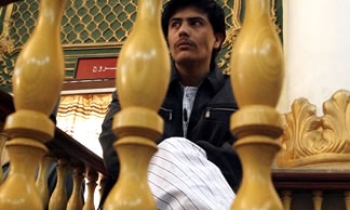WASHINGTON: An inquiry has found that an American public relations firm did not violate military policy by paying Iraqi news outlets to print positive articles, military officials said. The finding elevates to the Defense Department the decision on whether new rules are needed to govern such activities.
The inquiry, which has not yet been made public, was ordered by General George Casey Jr., the senior American commander in Iraq, after it was disclosed in November that the military had used the Lincoln Group, a Washington-based public relations company, to plant articles written by American troops in Iraqi newspapers while hiding the source of the articles.
The final report was described Tuesday by officials in Washington and Iraq who have read or been briefed on it and were granted anonymity because they were not authorized to speak publicly about it.
Pentagon officials said that Defense Secretary Donald Rumsfeld was considering new policies for regional commanders to clarify existing doctrine and rules on military communications and information operations.
Officials at the Pentagon and in Iraq said the Lincoln Group's contract remained fully in effect. The group's work, under a contract estimated at several million dollars, has included paying friendly Iraqi journalists stipends for favorable treatment.
Commanders in Iraq have said the group's efforts may continue unless a new policy to restrict or halt the practice is issued in Iraq or from the Pentagon. These officials said the review acknowledged the "gray area" in which military communications and information operations are conducted in the battle zone, but found that no legal violations were committed by the Lincoln Group in planting the stories.
The results of the investigation have been awaited with apprehension across the military and within the Bush administration, where officials have been struggling to find a way to improve the American image around the globe in the face of particular hostility in the Muslim world.
The findings are narrow in focus, and conclude that the Lincoln Group committed no legal violations because its actions in paying to place American- written articles without attribution were not expressly prohibited by its contract or military rules.
After disclosure of the secret effort to plant articles, angry members of Congress summoned Pentagon officials to a closed-door session to explain the program, saying it was not in keeping with democratic principles, and even White House officials voiced deep concern.
Rumsfeld and the Pentagon's civilian and military leaders were able to deflect direct criticism at the time because the contract had been signed by the military command in Baghdad. But the inquiry now leaves them to address whether new guidelines are needed to balance American values of a free press against the needs of commanders in the fight against insurgents in Iraq.
Paige Craig, a Lincoln Group executive vice president, said by telephone Tuesday that his organization had not been informed of the review's findings. He cited client confidentiality in declining to discuss the organization's contract with the military, its work and its payments.
Officials familiar with the review said it did not deal deeply with how Lincoln Group received the contract, nor whether the organization had established sufficient expertise or experience to carry out the contract effectively.
Casey has given no timetable for release of the official findings, and last commented on the investigation on March 3, when he said at a news conference, "By and large, it found that we were operating within our authorities and responsibilities." He said then that he had not ordered any halt to the practices because findings of the review, conducted by Rear Admiral Scott Van Buskirk, were still being evaluated.
Lawrence Di Rita, co-director of a Pentagon panel studying communications questions for the Quadrennial Defense Review that was released last month, said Rumsfeld and other senior officials were now considering new policies for regional combat commanders.









